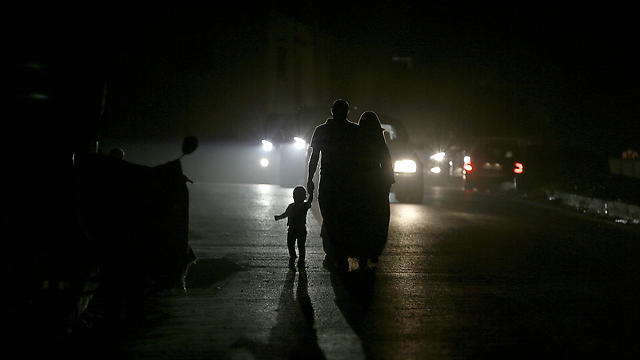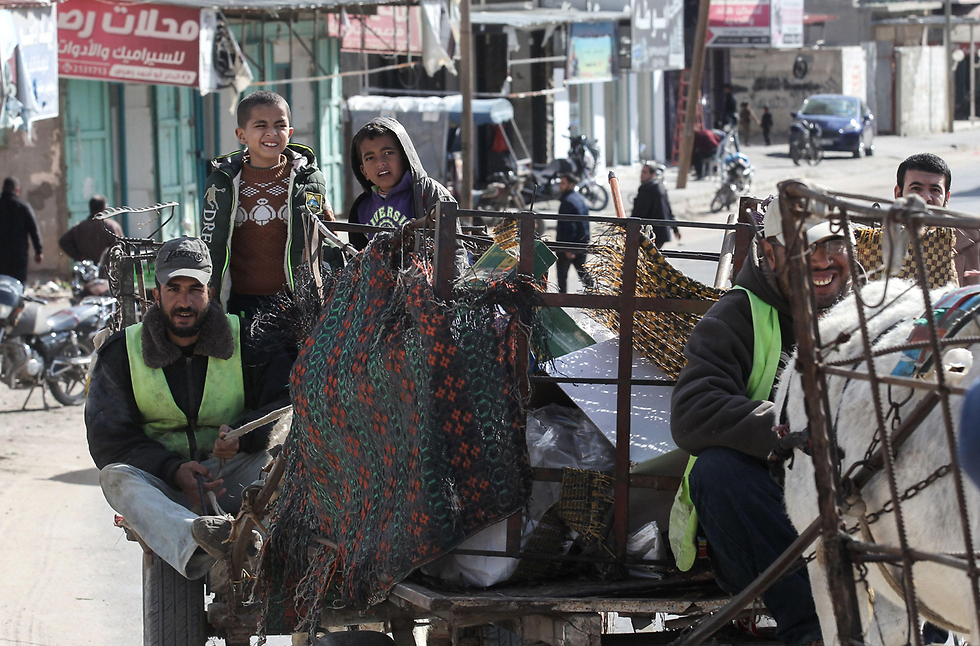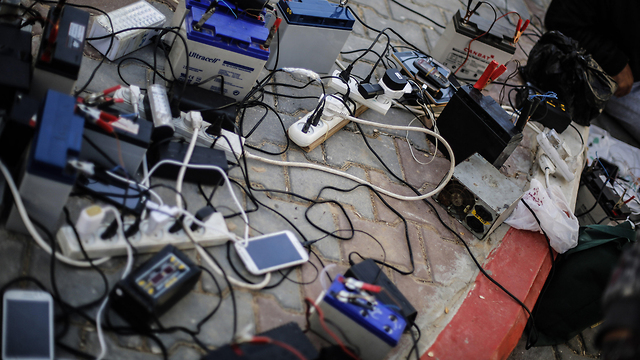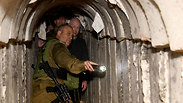
Greenblatt: Iran gives Hamas $100 million annually for terrorism
President Trump's Mid-East Envoy Jason Greenblatt attacks Iranian financial assistance to Gaza, which he says Hamas uses for tunnels and weapons instead of improving worsening humanitarian situation; 'The corrupt regime in Tehran squanders the resources of the Iranian people on military adventures throughout the region,' he tweeted; providing security overview for ministers, IDF Chief of Staff Eisenkot cautions that hostilities may break out if humanitarian situation worsens.
US President Donald Trump’s special Middle East envoy Jason Greenblatt, who recently visited Israel's communities on the Gaza perimeter and toured the terror tunnel the IDF exploded, claimed Sunday that Iran provided $100 million annually to Hamas.
"Imagine what the people of Gaza could do with the $100 million Iran gives Hamas annually that Hamas uses for weapons and tunnels to attack Israel!" he tweeted.
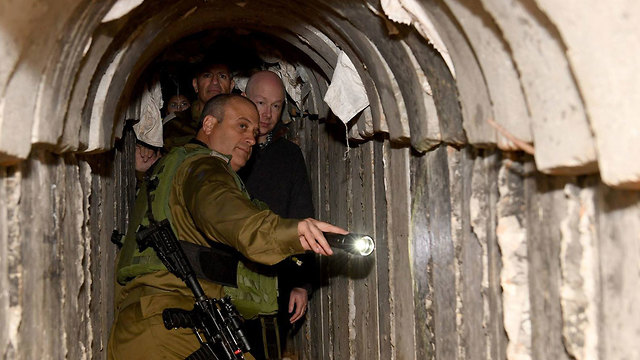
"The corrupt regime in Tehran squanders the resources of the Iranian people on military adventures throughout the region instead of investing at home and promoting peace abroad," he accused.
Chief of Staff Eisenkot: Israel should prevent total humanitarian collapse in Gaza
IDF Chief of Staff Gadi Eisenkot said at the weekly Cabinet meeting Sunday that no actors sought war or another round of hostilities in Gaza, but there was growing concern over a conflagration happening nonetheless due to the circumstances in the strip—the precarious humanitarian situation and the crisis in Hamas-Fatah relations.
Eisenkot's statements came during a security overview he had provided the ministers as part of what has been called "deepening their knowledge base."
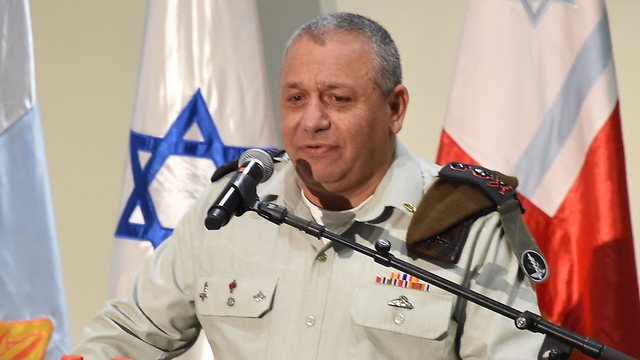
The chief of staff added that efforts should be made to prevent a total humanitarian collapse in Gaza, but that humanitarian assistance—which the IDF supported—needed to be kept separate from a complete rehabilitation of Gaza, which should be conditioned on returning the bodies of IDF soldiers Oron Shaul and Hadar Goldin as well as the Israeli civilians held captive by Hamas.
The army chief further noted that the humanitarian crisis there has worsened with added intensity since Palestinian Authority President Mahmoud Abbas has begun implementing a policy of disengagement from Gaza.
The crisis was especially grave, Eisenkot said, as it pertained to problems with water and power supplies. On the same topic, Prime Minister Benjamin Netanyahu commented that Israel would be "glad if international organizations and bodies assisted Gaza."
In a ceremony for the promotion of Lior Carmeli, head of the IDF's Computer Service Directorate, to the rank of major-general, Eisenkot added, "The IDF's superiority over its enemies is plain to see, but we remain aware of the very real risk of combustibility that exists on several fronts, which requires us to act with sound judgment, creativity, cunning, initiative and daring.
"I'm counting on you—especially during these complex times—to serve as an example for professional, responsible work. If we are required to operate the IDF's forces, we will do so and conquer any foe."
After visiting the Gaza perimeter and touring the tunnel, Greenblatt tweeted, "Hamas wastes resources on tunnels & rockets to attack Israel, instead of helping the people of Gaza by getting the lights on, the water flowing & the economy growing."
"Hamas spews hateful rhetoric & foments a vicious cycle of violence. Gaza deserves better!" Greenblatt added.
A worsening humanitarian crisis: Gaza on the brink
The chorus of voices within Israel's defense establishment cautioning that the deteriorating humanitarian situation in Gaza may lead to military confrontation—or to Israel having to assume civilian responsibilities over infrastructures in the strip to prevent utter collapse—has grown exponentially in the past year
The situation in Gaza, taken together with the buck of solving it being passed around, leaves Israel as the only capable player on the field. The Hamas-Fatah reconciliation process is mired deeply in crisis that is slowly transforming into a freeze, and both sides appear to be digging in their heels.
The current reconciliation agreement, then, seems to be about to take its place among countless previous reconciliation processes whose sole existence was on documents produced by the two parties.
Likewise, President Abbas has continued levying sanctions on Gaza, despite his decision to resume payments to Israel to restore the strip's power levels to what they were before the sanctions were imposed.
Egypt, the broker of this latest reconciliation attempt, continues keeping the Rafah Border Crossing locked up tight, despite Hamas handing over responsibility for crossings to the Palestinian Authority.
Very few people pass through the Erez Border Crossing, meanwhile, as the Kerem Shalom crossing for goods is seeing less and less traffic due to dwindling orders from Gaza in light of dire financial fortunes.
International aid groups, for their part, are carrying out a dwindling number of projects in Gaza. The United Nations' agency for Palestinian refugees, which is feeding close to a million mouths in Gaza, faces a severe cut of its budget following a decision by President Trump and it remains unclear how it will prioritize its various project in the region, and to which degree the strip's residents will be harmed by the cut.











